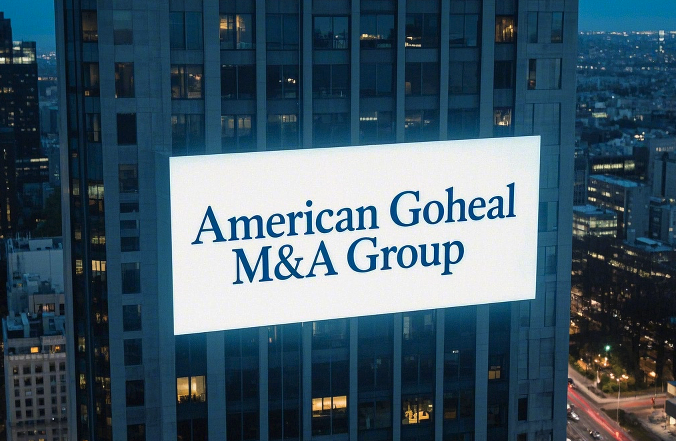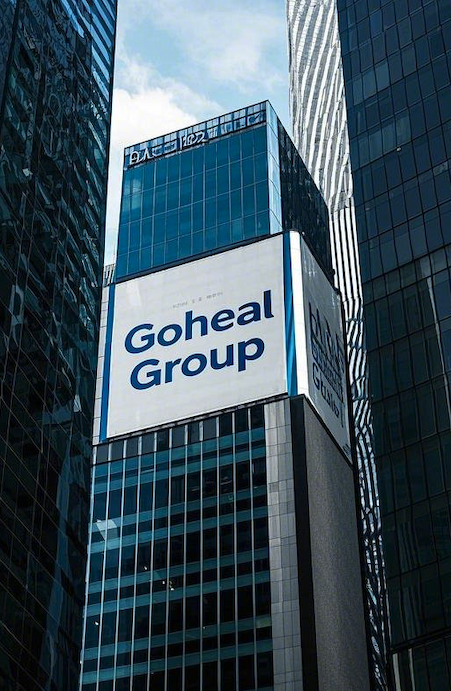"If you want to know straightness, you must have standards; if you want to know squareness, you must have rules." In the capital market, audit institutions are like the "standard" of corporate finance, using an annual audit report to determine the compliance, credit rating, and even life and death of listed companies. But the question is, is audit really the "ultimate referee" of corporate capital operation? Is it the only amulet for listed companies to operate in compliance, or is it sometimes it may also become an obstacle to capital operation and even be cleverly exploited by some market players?

American Goheal M&A Group
Recently, the annual review report storm of Qinshang Co., Ltd. (now *ST Qinshang) and Guandian Defense once again pushed the auditing agency to the forefront. Goheal has long studied capital operation cases of listed companies and found that the "authoritativeness" of audit is sometimes not as absolute as it appears, but is part of the capital market game. So, is the auditing agency a "safety officer" in the capital operation of listed companies, or a "variable" in the market game?
The Invisible Game of Capital Operation: "Authoritative" VS "Diacies" of Audit Reports
Audit reports in the capital market are ostensibly an important basis for measuring the financial health of an enterprise, but in fact they are a contest of compliance and interests.
Let’s take a look at the case of Qinshang Co., Ltd. This former leading LED company, due to its unfavorable business transformation over the years, suffered losses for two consecutive years in 2020. The auditing agency issued a reservation opinion with emphasis on matters. This report directly led to the change of the company's stock to "*ST Qinshang", the stock price fell sharply, and eventually faced the risk of delisting. The market's reaction is enough to show that the attitude of audit institutions is to some extent like the "ruling" of the capital market. But it is worth thinking about whether the capital market's confidence in Qinshang shares will last longer without the "reservation opinions" of the auditing agency?
Let’s take a look at the case of watch the Dian Defense. In the 2023 annual report, the auditing agency issued a reservation opinion by the auditing agency due to a sharp decline in net profit, doubts about commercial rationality and illegal guarantees. As a result, the company's stock price quickly plunged, and investors had serious doubts about its ability to continue operating. Does this mean that an "imperfect" annual review report can determine the life and death of a company? If the company still has the possibility of improving its operations, is the "one-size-fits-all" conclusion of the audit too absolute?
From these cases, it can be seen that although audit reports are an important tool to measure the compliance of listed companies, they are not absolute truth, but a "evaluation" based on rules and market psychology. Goheal found that in capital operations, experienced companies often adjust financial data in various ways before auditing, making the reports as "good-looking" as possible, and even use the audit styles of different audit institutions to optimize the awareness of the capital market. Does this mean that the compliance strategies of listed companies are far more complicated than the seemingly simple annual review report?
Is auditing a "protective umbrella" or a "tight hoop"?
Every step of the operation of an enterprise in the capital market is inseparable from the "moat" of compliance. But the reality is that the conservative attitude of some audit institutions has become a stumbling block in corporate development.
For example, when some audit institutions issue audit reports, due to their own risk control requirements, they may take a more cautious attitude towards the company's financial data, resulting in the report containing a large number of "emphasized matters", "reserved opinions" and even "unable to express opinions". Once such an audit report is disclosed, investors' confidence will often be severely hit, stock prices will fall accordingly, corporate financing will be blocked, and eventually fall into a vicious cycle.
But on the other hand, some companies cleverly use audit rules in capital operations and even conduct "audit arbitrage". For example, in mergers and acquisitions, some companies will choose audit institutions of different styles to obtain more "favorable" reports to help complete asset valuation or financing plans. During the restructuring process, the attitude of the auditing agency may also affect market expectations and become a key factor in the success or failure of the transaction. In several mergers and acquisitions, Goheal has witnessed how companies can plan financial data in advance and optimize compliance strategies to ensure that audit reports meet the expectations of the capital market.
This raises a key question: Is the annual review report of audit institutions a "tightening curse" that enterprises must follow, or a "protective umbrella" that can be flexibly dealt with?
How can enterprises find the best solution in the mystery of audit compliance?
1. Choose the right auditing agency
Different audit agencies may interpret financial issues completely differently. The standards of large international audit institutions are stricter, but the market recognition is high; local audit institutions are relatively flexible, but may have lower credibility in the capital market. Therefore, before capital operation, enterprises should choose the most suitable auditing agency based on their own needs, rather than blindly pursuing "big brands".
2. Plan financial data in advance to avoid "stepping on the mine" of audits
When auditing, audit institutions often focus on key indicators such as the company's profitability, asset and liability, and cash flow. If the company does not make reasonable plans before the annual audit, it is likely that the financial risks will be amplified during the audit process, resulting in adverse audit conclusions. Therefore, enterprises should ensure that financial data meets regulatory requirements through financial optimization, business adjustment and other methods before annual review.
3. Flexible response to audit conclusions and formulate capital operation strategies
If the company receives "reserved opinions" or "emphasized matters" in its annual review report, it does not mean that there is no way out. On the contrary, companies can reduce market panic and maintain investor confidence through supplementary disclosure, market communication, strategic cooperation, etc. At the same time, in capital operations, enterprises can use compliance strategies to plan ahead of schedule to deal with potential audit risks.
Conclusion: Audit really requires annual audit? Can companies find a better solution?
The rules of the capital market are not absolutely rigid, but are full of games and strategies. Although the annual audit report of an audit agency is important, it is not the only determinant of the operation of corporate capital. Truly smart companies are often able to find the best capital operation path under the compliance framework, rather than being bound by audit reports.
Do you think listed companies should rely entirely on the judgment of audit institutions in their capital operations, or can they formulate more flexible compliance strategies? Will the authority of audits affect the fairness of the capital market? Welcome to leave a message in the comment area to discuss and reveal the real logic behind audit compliance!

Goheal Group
[About Goheal] Goheal is a leading investment holding company focusing on global mergers and acquisitions and holdings. It has deeply rooted in the three core business areas of listed company control acquisition, listed company mergers and acquisitions and restructuring, and listed company capital operation. With its deep professional strength and rich experience, it provides enterprises with full life cycle services from mergers and acquisitions to restructuring and then to capital operation, aiming to maximize corporate value and long-term growth of profits.